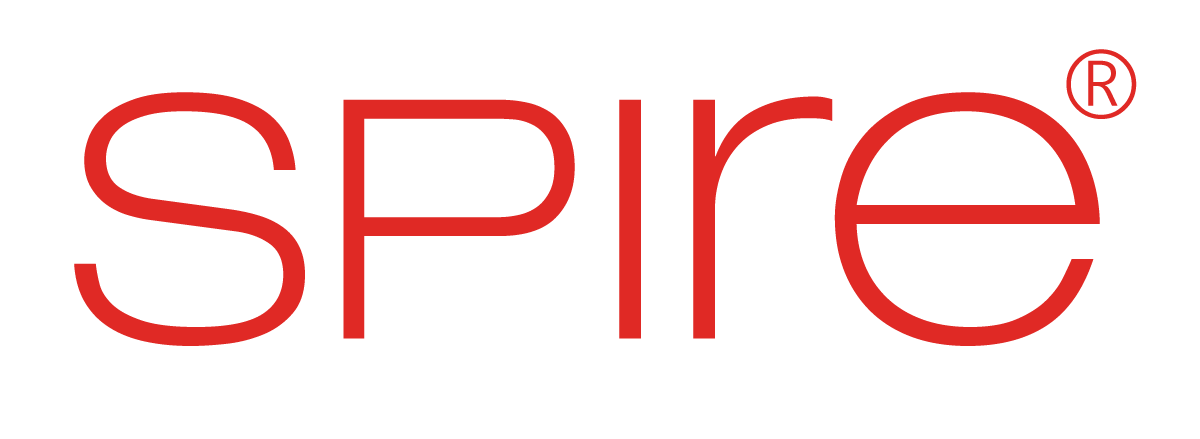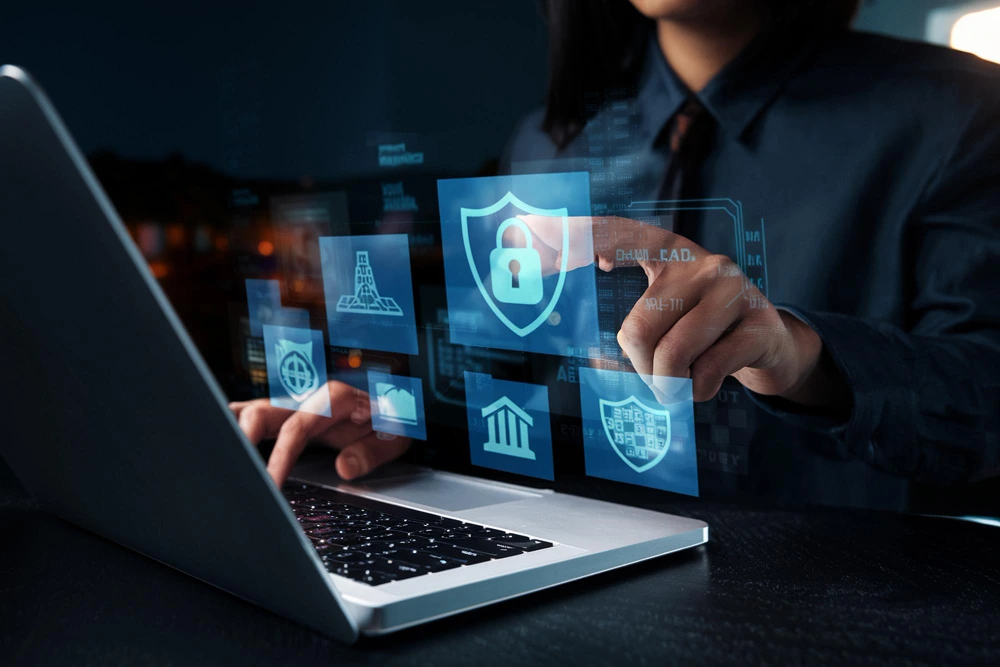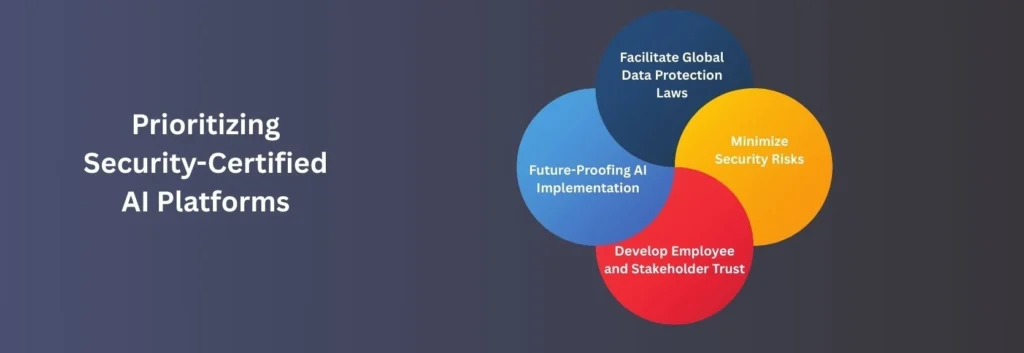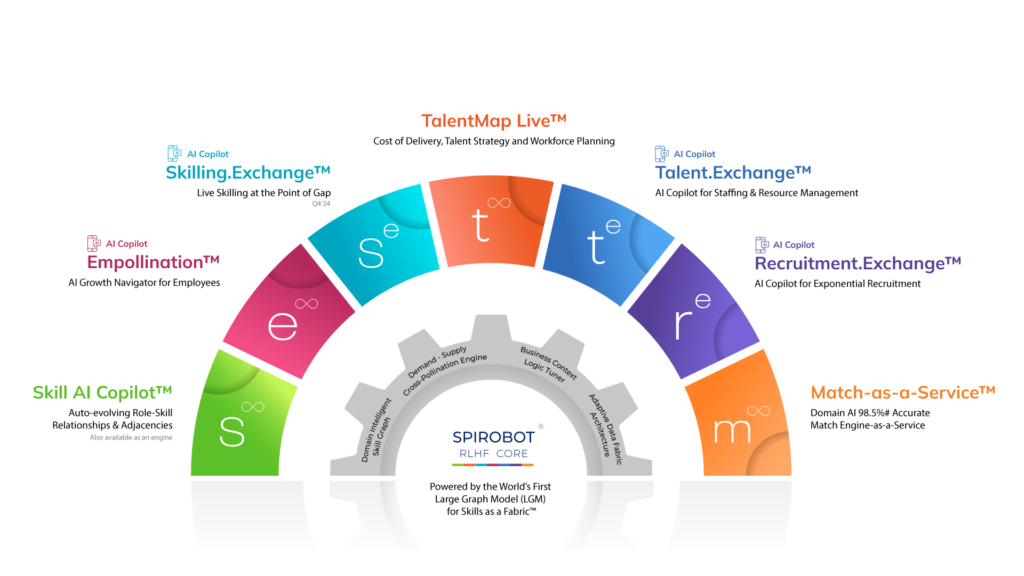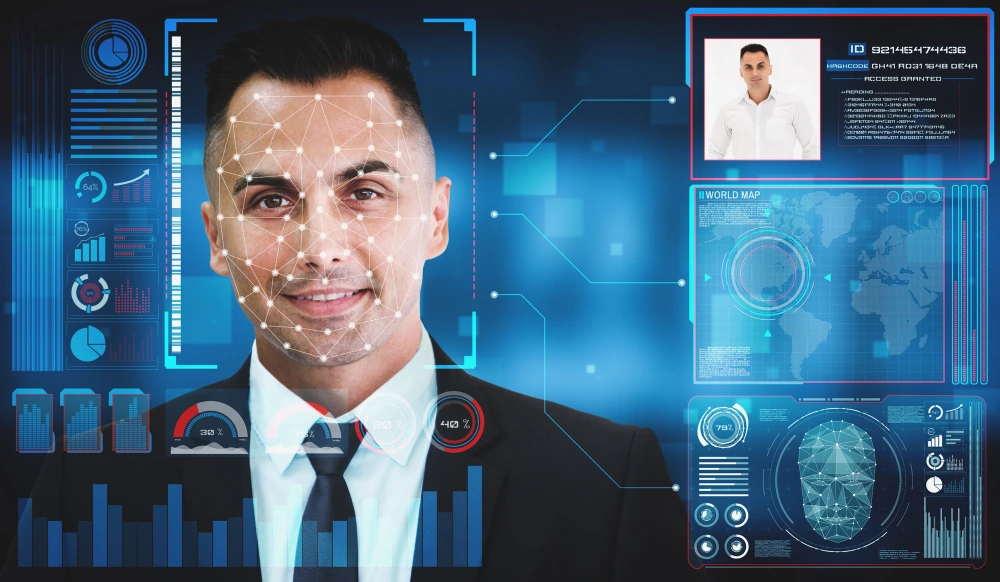The digital transformation of HR functions through AI-driven talent intelligence platforms reshapes how organizations attract, assess, and retain talent. From predictive hiring to skills mapping and career development, AI is accelerating workforce decision-making like never before. However, with these advancements comes a significant challenge, “securing employee data.”
Chief Human Resource Officers (CHROs) and HR leaders must navigate a landscape where AI adoption brings both opportunities and risks. As organizations collect, process, and analyze vast amounts of employee data, ensuring compliance with global security standards is paramount. Without robust security measures, the potential for data breaches, unauthorized access, and compliance violations poses a serious threat.
This article explores why employee data protection is crucial in an AI-driven economy, and how regulatory frameworks like ISO 27001 and SOC 2 Type II play a vital role.
Understanding the Risks: Why Employee Data Protection is Crucial
AI-powered workforce analytics rely on extensive employee datasets, covering everything from resumes and performance reviews to behavioral assessments and career aspirations. While these insights empower organizations to make data-driven HR decisions, they also introduce significant risks.
- Data Breaches: AI platforms store and process sensitive employee data. Cybercriminals target HR systems, seeking personal information such as social security numbers, salaries, and career histories.
- Unauthorized Access: Without stringent access controls, employee records may be exposed to unauthorized personnel, leading to potential data misuse or leaks.
- Compliance Violations: Failure to adhere to regulations such as GDPR, CCPA, and other data protection laws can result in hefty fines, legal challenges, and reputational damage.
- Ethical Concerns: AI-driven HR decisions must be free from bias and discriminatory practices. Transparency in how employee data is used is critical to maintaining trust.
Organizations bear both legal and ethical responsibilities in safeguarding employee data. CHROs and HR leaders must ensure that AI solutions not only enhance workforce capabilities but also maintain the highest data security standards.
The Rising Challenges of Workforce Data Security
With AI-enabled HR systems collecting extensive employee information, including personal identifiers, career histories, performance evaluations, and even behavioral insights, the risk of data misuse, breaches, or unauthorized access is higher than ever.
- Cybersecurity Threats: HR databases are prime targets for cybercriminals looking to exploit employee credentials, social security numbers, financial details, or other sensitive data.
- Regulatory Compliance Risks: Governments worldwide have introduced strict data privacy regulations such as GDPR (General Data Protection Regulation), CCPA (California Consumer Privacy Act), and PIPL (Personal Information Protection Law of China). Non-compliance with these laws can result in severe penalties and legal consequences.
- Loss of Employee Trust: Employees expect their organizations to handle personal data responsibly. Any mishandling or data breach can lead to a loss of trust in HR systems and AI-driven decision-making.
To ensure ethical AI adoption in a skills-based economy, organizations must strike a balance between leveraging AI capabilities and protecting employee data. This requires a robust security-first approach to AI-driven HR technology, one that adheres to globally recognized security standards like ISO 27001 and SOC 2 Type II.
Regulatory Landscape: Compliance as a Competitive Advantage
Compliance with industry-leading security standards is no longer optional; it is a strategic advantage. Organizations that prioritize data security gain credibility, trust, and long-term sustainability in an AI-driven economy.
ISO 27001 and SOC 2 Type II: The Gold Standards in Data Security
- ISO 27001 is an internationally recognized framework for establishing, implementing, and maintaining an Information Security Management System (ISMS). It ensures a systematic approach to handling sensitive information.
- SOC 2 Type II evaluates an organization’s security, availability, processing integrity, confidentiality, and privacy controls over a period of time. This certification requires ongoing monitoring and compliance audits.
Why CHROs Should Prioritize Certified AI Platforms
HR leaders today are tasked with driving workforce transformation and ensuring data security and regulatory compliance. AI-driven HR solutions bring immense potential for automation, efficiency, and strategic decision-making. However, without proper security measures and compliance frameworks, organizations risk exposure to data breaches, lawsuits, and reputational damage.
The Growing Demand for Secure AI in HR Operations
Most executives view AI as a game-changer for workforce planning, yet data security remains a major concern. As AI-driven talent platforms become more integrated into HR workflows, CHROs must proactively safeguard employee data and build trust in AI-powered decisions.
Key reasons why HR leaders should prioritize security-certified AI platforms.
- Ensuring Compliance with Global Data Protection Laws
- AI platforms certified under ISO 27001 and SOC 2 Type II meet the highest standards of security, confidentiality, and risk management.
- Certified platforms help HR teams avoid hefty penalties and legal consequences associated with data privacy violations.
- Minimizing Security Risks in HR Data Management
- Cybersecurity threats are evolving rapidly. AI-driven HR platforms must implement advanced security mechanisms such as end-to-end encryption, access control policies, and AI-driven anomaly detection to mitigate potential threats.
- Building Employee and Stakeholder Trust
- Employees, business leaders, and regulatory bodies need assurance that their data is being handled securely.
- Adopting a security-first AI approach strengthens employer branding and enhances workplace transparency.
- Future-Proofing AI Implementation in HR
- Security-certified AI platforms are built to adapt to evolving regulations and technological advancements.
- By prioritizing security-compliant AI solutions today, organizations can scale their workforce transformation initiatives with confidence.
For CHROs, choosing AI-driven HR solutions that are ISO 27001 and SOC 2 Type II certified is no longer an option—it’s a necessity. By ensuring compliance with these gold-standard security frameworks, HR leaders can safeguard sensitive workforce data while maximizing the potential of AI-driven HR operations.
The Significance of SOC Compliance
SOC (Service Organization Control) compliance, particularly SOC 2 Type II, has become a benchmark for data security in HR technology platforms. Organizations dealing with sensitive employee data must demonstrate adherence to these rigorous security controls.
Key Benefits of SOC 2 Type II Compliance
- Demonstrates Commitment to Security: SOC 2 Type II compliance reassures stakeholders that an organization follows best practices in protecting employee data.
- Ensures Continuous Monitoring: Unlike SOC 2 Type I, which assesses controls at a single point in time, SOC 2 Type II evaluates security controls over several months, ensuring sustained compliance.
- Mitigates Data Breach Risks: According to a 2024 IBM report, the average cost of a data breach reached $4.88 million, an increase of 10% over the past three years. SOC 2 compliance helps mitigate such risks by enforcing strict security protocols.
- Enhances Trust and Transparency: Employees, partners, and regulators gain confidence in a company’s security posture when it holds SOC 2 certification.
How Spire.AI Ensures Robust Employee Data Protection
Spire.AI has made security a foundational pillar of its AI-driven HR solutions. The platform has achieved SOC 2 Type II compliance, demonstrating its commitment to protecting sensitive workforce data.
Key Security Measures Implemented by Spire.AI
- End-to-End Encryption: Spire.AI encrypts employee data both in transit and at rest, ensuring that information remains secure at all times.
- Access Control Mechanisms: The platform employs role-based access controls (RBAC) to limit data exposure to only authorized personnel.
- AI-Driven Anomaly Detection: Advanced machine learning models monitor data transactions and flag suspicious activities in real time, preventing unauthorized access.
- Risk Monitoring and Compliance Audits: Continuous risk assessments and third-party audits ensure that security protocols remain effective against evolving threats.
Spire.AI’s ISO 27001 and SOC 2 Type II compliance ensures robust data protection, giving CHROs confidence in safeguarding sensitive workforce information.
Real-World Impact
Spire.AI’s compliance with SOC 2 Type II has strengthened data security for enterprise clients.
- Reduce security vulnerabilities in HR processes.
- Ensure compliance with global regulatory requirements.
- Build employee trust by safeguarding personal and professional data.
By adhering to the highest security standards, Spire.AI has positioned itself as a trusted AI partner for HR leaders worldwide.
Future-Proofing AI-Driven HR Systems
As AI adoption in HR continues to grow, organizations must implement proactive measures to ensure long-term data security.
Best Practices for HR Leaders
- Conduct Regular Security Audits: Periodic assessments help identify vulnerabilities and strengthen security frameworks.
- Employee Training on Data Protection: HR teams must educate employees on best practices for handling sensitive workforce data.
- Implement Ethical AI Governance: AI-driven HR decisions must be transparent, bias-free, and aligned with ethical guidelines.
- Adopt Zero-Trust Architecture: Organizations should implement strict verification protocols for all users accessing HR data systems.
- Partner with Security-Certified AI Vendors: Working with SOC 2-certified platforms like Spire.AI ensures compliance and long-term security.
By adopting these measures, CHROs can create a future-proof HR ecosystem where AI enhances workforce intelligence without compromising data privacy.
Building a Secure and Compliant AI-Driven Workforce
Balancing AI innovation with data security is crucial in today’s skills-based economy. Organizations must recognize that the cost of non-compliance can be far greater than the investment in robust security measures.
Why Partnering With Security-Certified AI Platforms Like Spire.AI Matters
Why You Need To Partner With Security-Certified AI Platforms Like Spire.AI?
1. Ensures Compliance
2. Protects Employee Data
3. Enhances Employee Trust
- Ensuring Compliance with ISO 27001 and SOC 2 Type II Standards
- Spire.AI’s SOC 2 Type II certification demonstrates its commitment to data security, risk mitigation, and compliance excellence.
- Certified AI solutions help organizations meet regulatory requirements across different global markets.
- Protecting Employee Data from Cyber Threats and Unauthorized Access
- AI-driven HR systems must prioritize data encryption, secure access controls, and real-time risk monitoring.
- Spire.AI’s AI-driven anomaly detection system proactively identifies security threats, ensuring workforce data remains protected.
- Enhancing Trust Among Employees, Regulators, and Business Stakeholders
- Data security is directly tied to workplace trust and organizational reputation.
- Spire.AI’s adherence to SOC 2 Type II and ISO 27001 standards ensures that its AI-powered HR solutions remain transparent, compliant, and trustworthy.
By prioritizing security-certified AI solutions like Spire.AI, HR leaders can confidently drive AI-powered workforce transformation while ensuring regulatory compliance, data security, and employee trust.
Bottom Line
The potential for AI to enhance recruitment, development, and retention is undeniable, but without a solid foundation of security and compliance, the risks outweigh the rewards. For CHROs and HR leaders, embracing AI technology means more than just adopting innovative tools, it requires a strategic commitment to safeguarding the sensitive data that drives those tools.
By partnering with platforms like Spire.AI, which are certified under rigorous standards such as ISO 27001 and SOC 2 Type II, businesses not only protect their workforce data but also foster trust and transparency, crucial elements for long-term success.
The future of HR is AI-driven, but to succeed, organizations must ensure that innovation is always accompanied by ironclad security. When it comes to workforce transformation, secure AI is not an option, it’s a necessity.
